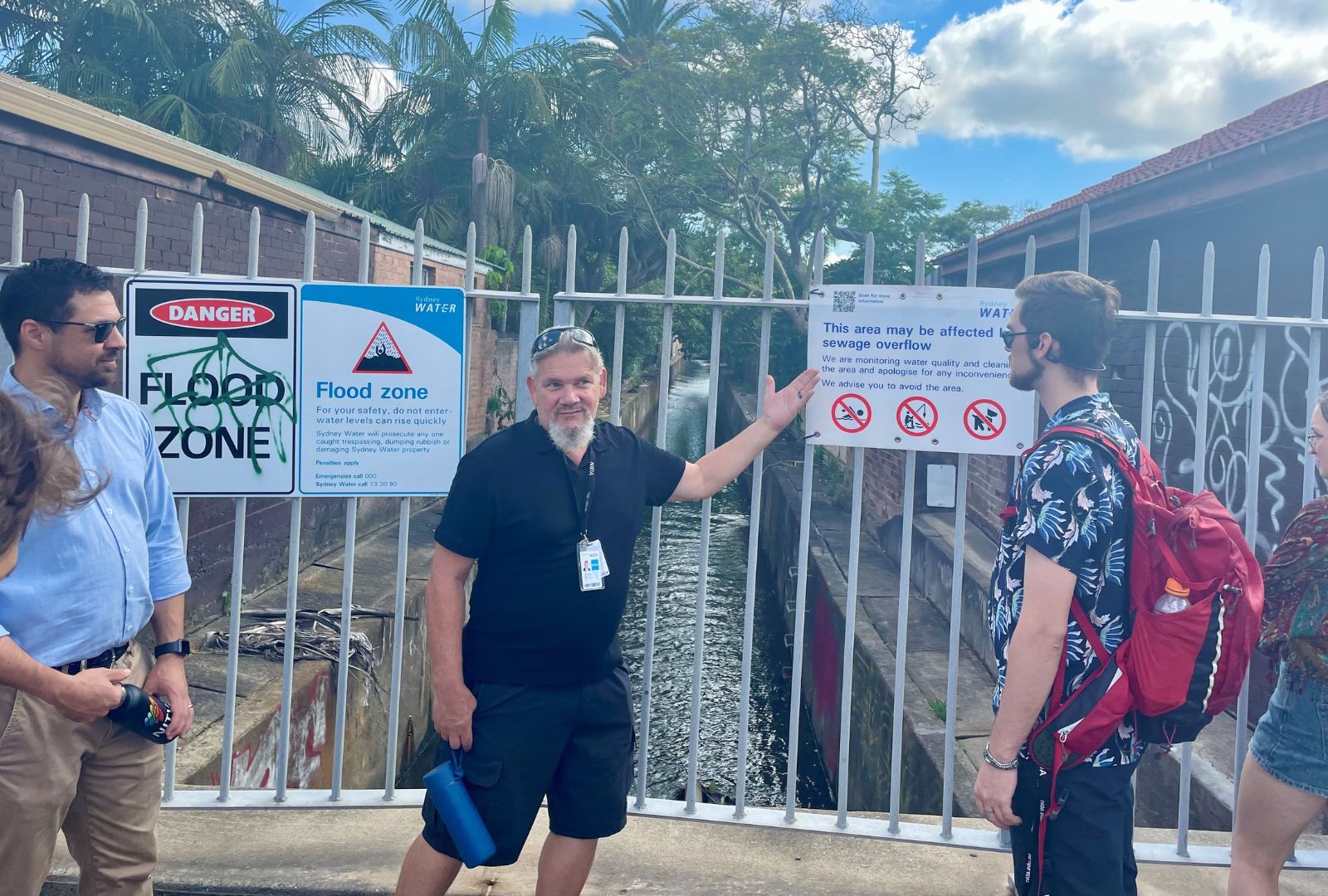At the end of 2023, Course Leaders for the NIDA’s Bachelor of Fine Arts (BFA) programs came together to develop a new subject in the curriculum to be completed by all first-year BFA students. As part of this subject, NIDA’s Uncle in Residence, Matthew Doyle and NIDA alumnus and Head of First Nations, Travis Cardona (Acting, 2008) have guided the development of the BFA Performance Makers Subject, which is delivered from a First Nations pedagogical framework. Students learn foundational skills in collaborative storytelling, environmental and career sustainability, mental health and well-being, inclusive practice and diversity, entrepreneurial skills, and emerging technologies. These skills are taught holistically, with Uncle Matt gently guiding students through a markedly non-Western educational model, which is fairly unique in arts education.
The course curriculum encompasses a diverse range of foundational skills essential for emerging performance artists. Students from all six BFA disciplines converge in a non-hierarchical environment, fostering crucial communication skills and empathy rooted in First Nations philosophies. Through this holistic approach, students not only gain practical skills but also cultivate a deeper understanding of community and collaborative storytelling, a practice rooted in Australian Indigenous culture.
Central to the subject is the concept of Connection to Country, which encourages students to explore their sense of place and belonging within the landscape surrounding NIDA. Uncle Matt and Travis Cardona have played pivotal roles in guiding students to appreciate the profound significance of Caring for Country. As an initial task, Uncle Matt challenged students to uncover stories of nature’s resilience embedded within and around NIDA’s immediate environment, the traditional lands of the Bidjigal and Gadigal people of the Eora nation.

Organised into small groups, students embark on a journey to discover narratives of resilience, focusing on elements such as the waterways that sustain Sydney, the survival strategies of indigenous animals like ibises, eels, and turtles, and the resilience of vegetation in urban settings. By examining the natural world through this lens, students develop a deeper connection to their surroundings and gain insights into the reciprocal relationship between people and place.
Another exploratory task asked students to reflect on the significance of trees on NIDA’s campus with profound responses. Students reported that beyond providing shade and tranquillity, these trees serve as tangible symbols of resilience and adaptation, which are desirable attributes. NIDA students utilise these outdoor spaces not only for relaxation but also as creative sanctuaries where ideas can flourish organically, and performances are rehearsed while shaded from the sun. As they continue their education into their second and third year, this connection will deepen and grow, remaining with them as they enter into the creative arts industry.
Health and wellness are central to the BFA Performance Makers Subject with the concept of deep listening called ‘Wingara’* introduced by Uncle Matt. Deep listening is the art of truly hearing and understanding, fostering community bonds, and preserving cultural heritage through oral storytelling. Students who practise deep listening develop abilities to connect with diverse narratives and perspectives, cultivating not only storytelling skills but also empathy, respect for indigenous knowledge, and a profound appreciation for the power of listening. As the premier institute devoted to training the next generation of Australian storytellers, this practice has become foundational to our curriculum.
‘The BFA Performance Makers Subject at NIDA represents a fresh approach to arts education, one that embraces First Nations’ perspectives, fosters collaboration across disciplines, and instils values of stewardship towards the environment. It is a safe place for all our students to get to know one another, ask questions in a safe environment and learn more about where we come from.’ Travis Cardona, Head of First Nations.
By integrating deep listening, Connection to Country and collaborative learning into its fabric, NIDA is fostering a new generation of artists who are not only skilled makers, managers and performers, but also compassionate contributors to Australia’s cultural heritage and advocates for reconciliation.
*The word ‘Wingara’ comes from the Sydney language, often referred to as Dharug/Dharawal and/or Eora language.

